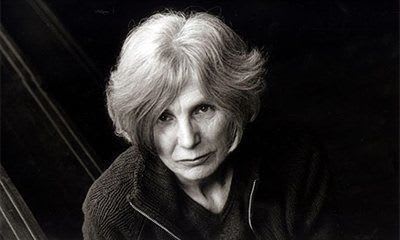The Hospital at the Time of the Revolution gives the Finborough another exciting coup in the shape of a Caryl Churchill world première, admittedly 41 years late.
This 90-minute piece started life as a radio play in 1972 and as a consequence lacks any great visual drama. However, it packs a powerful punch by asking viewers to consider whether life can be normal in a society that is abnormal.
It is partly based on a chapter in Frantz Fanon's The Wretched of the Earth and the psychiatrist / political activist take centre stage as a character in the form of the bespectacled Miles Mitchell, who presides over an Algerian mental hospital in that year of political turmoil 1956.
With the exception of this calm psychiatrist from Martinique, the participants divide into two categories based not on birth but roots, as either French or African Algerians. As such, the play explores identity, race and nationality, all topics in which Miss Churchill has shown an abiding interest through her long career.
In short scenes, a series of actual and potential patients rehearse their problems. The most significant is Ruth Pickett playing 17-year-old Françoise, quite possibly an early model for the similarly haunted young girl in Far Away, the impeccably reared daughter of a patronising colonial administrator and his meek wife.
The youngster's name is the giveaway as she represents the mother country, with her schizophrenic faith that she is fast disappearing symbolising the loosening grip that France had on Algeria in these difficult times.
Although the girl maybe schizophrenic, it is necessary to understand that many of her delusions seems to be based on denial. This is the result of her father's activities, which have more than a touch of the Pinter menace about them, involving regular sessions of torture.
This mirrors the behaviour of a French Algerian police chief who is tormented by his long-suppressed conscience about the day job, which primarily seems to consist of forcing prisoners into confessing by whatever means necessary.
Another pair of patients are respectively a guilty French Algerian, adeptly played by Tim Pritchett, who repeatedly rejects his white skin and cultural heritage, desperately trying to swap places with his black associate, Benjamin Cawley taking the role of a revolutionary bomber. So obsessed are these two with their own problems that their conversations rarely overlap or interact.
Finally, there is the inevitable junior doctor whose opinions are more extreme than those of most of his patients. Will Rastall's character expresses the kind of supremacist views that these days could only be safely expressed in a secure institution (or possibly only political hustings).
All of these elements come together in an intense 90-minute drama that provides an oblique commentary on colonial oppression and revolution.
All credit must go to the ever-enterprising Finborough and director Jim Russell for finding and producing a worthy work that should not have been neglected for so long.
